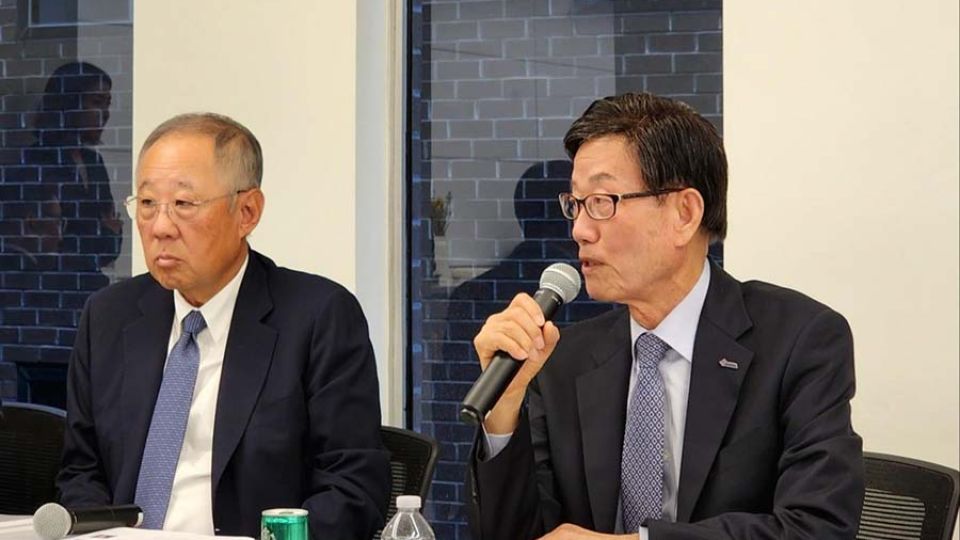May 16, 2024
SEOUL – Korea is closely evaluating potential impacts on its key manufacturing sectors in response to steep US tariff hikes on key Chinese imports hoping to capitalize on any advantages while bracing for potential supply chain disruptions globally.
US President Joe Biden on Tuesday announced tariff hikes against Chinese imports, targeting a range of products including electric vehicles, legacy semiconductors, advanced batteries, battery components, solar cells, steel, critical minerals, aluminum and medical equipment, based on what the administration describes as unfair trade practices.
The new policy will see tariffs on Chinese electric vehicles jump from 25 percent to an unprecedented 100 percent, and on lithium-ion batteries rise from 7.5 percent to 25 percent, with similar increases on essential minerals like natural graphite and permanent magnets slated for gradual implementation by 2026.
Analysts say Biden’s aggressive tariff plan is likely motivated by concerns about protecting strategic American industries such as clean energy and semiconductors with targeted tariffs, particularly during this election year in which he faces Trump, who has backed trade confrontation with China.
The new tariffs, which will take effect over the next two years, could reshape market dynamics, particularly affecting countries like Korea that are deeply integrated into the high-tech global supply chain.
Chinese-made electric vehicles, including Tesla models produced in Shanghai, have minimal presence in the US market, but the ripple effects of these tariffs could extend far beyond US shores.
South Korean government officials have yet to issue a formal response, adopting a wait-and-see approach to understand better the specific items targeted by the new tariffs and any potential for Chinese retaliation.
The concern is that any retaliatory measures from China could ignite further tensions and lead to broader industry disruptions, particularly for nations like Korea that could be caught in the crossfire.
The automotive industry in Korea, which has intricate connections with Chinese suppliers for parts and raw materials, is particularly vigilant. Industry insiders are still analyzing whether the US’ new tariffs could inadvertently benefit Korea in the short term by making Korean electric vehicles more competitive against their Chinese counterparts that are hindered by the higher tariffs.
“The substantial hike in US tariffs could actually play to our advantage. It creates a situation where Korean products might find better traction in the market, outpacing Chinese alternatives burdened by these new costs,” said Yeon Won-ho, head of the economic security team at the Korea Institute for International Economic Policy.
The Korean battery industry may benefit from the new US tariffs — set to increase from 7.5 percent to 25 percent — on Chinese lithium-ion batteries next year. This move could diminish the price competitiveness of Chinese companies like CATL and BYD, which have previously countered US trade barriers by reducing prices.
“Korean batteries are currently leading in the US EV market. With the anticipated rise in costs for EVs equipped with Chinese batteries, American consumers might show a preference for Korean batteries, which would be similarly priced but not subject to the same tariffs,” a Korean battery industry official said.
The increase in tariffs for Chinese general-purpose semiconductors from 25 to 50 percent by 2025 is unlikely to affect Korea’s semiconductor industry.
Korea excels in advanced semiconductor technology, contrasting with China’s focus on lower-cost, older-generation analog chips. This divergence has only been widened by US sanctions limiting China’s access to higher-end semiconductor manufacturing tools.
In the steel sector, the recent US imposition of a steep 25 percent tariff on Chinese steel and aluminum may pose challenges for Korean steel giants such as Posco and Hyundai Steel, as it could drive Chinese manufacturers to increase their exports to South Korea, potentially flooding the market with cheaper alternatives.
Korea is limited in leveraging the US market to offset this impact. Under a 2018 agreement following US tariffs on Korean steel, Seoul secured a quota allowing 2.63 million tons of tariff-free steel exports to the US annually. This quota was intended to protect Korea’s steel industry from the competitive pressures of the US market.
Meanwhile, Chinese firms, losing their foothold in the US, might boost their presence in less protected markets, including Korea’s own backyard.
Further complicating the situation is the depreciation of the Japanese yen, which has made Japanese steel cheaper and increased its import into Korea.
Data from the Korea Iron & Steel Organization shows that imports from China and Japan surged to 8.73 million tons and 5.61 million tons, respectively, last year, marking increases of 29.2 percent and 3.1 percent over the previous year.


